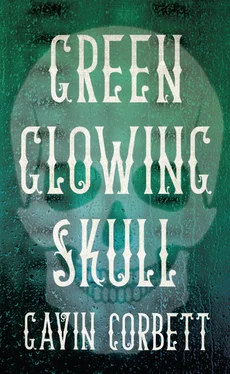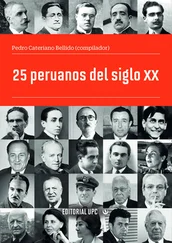Why has he come here among us?
Did Townsend send him to snuff out our plans
To smash up the smooth white fungus?’
The chorus lines swapped sides, slicing through each other in cartwheels.
Rickard grabbed at his heart. He felt light-headed. He felt himself slipping away.
***
Fairy lights and candlelight were the first to meet his sight before his eyes adjusted to a room gutted to the bare brick. But the occupants had made the most of it: the candles gave off a smell of sandalwood, red and orange Moroccan floor mats hung on the walls, and toy spaceships from the merchandising line for the eighties film Privateers of Orion dangled by fishing thread from hooks in the ceiling.
‘The heat rising from the candles makes them spin,’ said the boy in the chair. ‘Cool, huh?’
‘What am I doing here?’ said Rickard. ‘Who are my captors?’
‘You nearly hit your head on the ground. One of us caught you.’
‘Did you use the power of embarrassment to try and kill me?’
‘No. We used a blowpipe, and a dart dipped in mescaline. But only to disable you. My name’s Slipper. Those are my ships. I tied them up for you. Sorry for calling you Proteus Boy earlier. It’s just that your head reminded me of Proteus, Neptune’s irregular-shaped satellite.’
‘We like asymmetry here,’ came another voice — Fondler, standing in the doorway. She was wearing one of the grey outfits and her hair was now in spikes.
‘Where is here?’ said Rickard.
‘We like old stuff too,’ said Slipper. ‘We bought a VCR last week. It took us a long time to find one. We don’t buy things online. Maybe you know how to work a VCR?’
‘I share this room with Slipper,’ said Fondler. (There was one single bed in the room. Rickard lay on a sofa that smelt strongly of body odour.) ‘Let me show you around.’
She brought him into a tight dark corridor and pointed towards rooms — none of which had doors in their doorways — where other gang members slept. The lower floors were much the same: corridors of crumbling plasterboard or bare brick with doorless rooms off them. The only illumination in the corridors came from garlands of fairy lights, gaffer-taped to the walls and ceilings. In every corridor at least a couple of the grey-suited youths loitered, some of them smoking. All of them cheerfully acknowledged him.
‘I’ve explained to them who you are — that you were in the singing group with Denny Kennedy-Logan, and that you once came to the Bryant Square store and appeared very confused about the machines,’ said Fondler.
She seemed a leader among the people here; they took care to nod back to her. From her body language — by where she stood and in the way she stood squarely to him — he was never in any doubt that he could not go up any of the corridors to look in the rooms, and her manner suggested she was not simply keeping to house rules. He found her certainty and her power, and the subtlety with which she wielded it, an attractive quality. She was so subtle with her power, and so certain and so brave, that he felt her manipulate the space between them. It was only then that he noticed again the dense black eyes, and also her pert figure that still managed to assert itself under her loose grey boiler suit. He felt helpless and acquiescent despite the conviction that she was using her allure to break him down.
Taking him by his limp hand she led him into a large basement. This, it was clear, was the main communal area in the building. Walls had been knocked down to make the space open plan, and iron girders were wedged vertically under sections of ceiling that had lost their support. Beanbags were thrown about the floor, and a long and shabby sofa curved with one of the corners. The area was filled with junk — on battered, mismatched tables, on rickety shelves, and on any space that could contain it. There were many commonplace items from the recent past: naked dolls and other children’s toys, office toys with steel balls and blobs of coloured oil in them, a broken ‘ghetto blaster’, scuffed ice-hockey sticks. There were also older items: brass deep-sea diving paraphernalia, a phrenology bust, wooden crutches and prosthetic legs, a stuffed baby warthog. And there was a framed picture, executed largely in airbrushed paints, of a naked black man and a naked black woman fornicating under a full moon and a bolt of fork lightning in front of a waterfall with a black panther stalking the upper rocks. Rickard, awed, felt a compulsion to comment, but did not say a word. To speak, he feared, would have been to disturb and complicate something delicate; delicate and already complicated.
There were three others in the basement — two girls on the sofa and a boy on a beanbag. They were smoking. The windows were all shut; Rickard tried to swallow a cough. He stood awkwardly among them, then was bidden to take a beanbag, as Fondler went to a kitchen area and fetched him a beer. The bottle was welcome coolness in his hands.
‘So I can tell you,’ she addressed her fellow gang members, ‘that he’s no threat to us. He may well even be on our side.’
She already knew his name: she’d picked it up from the bill poster for the concert.
‘I take it’ — now she was addressing him — ‘that you followed me here because you assumed I was on their side.’
‘Yes, yes,’ he whispered tragically and wonderingly from his supine position.
‘Well you assumed wrong. I may be on the payroll of Puffball but I’m actively working against Puffball. From the inside.’
She went on to describe how all the members of the gang — they called themselves the ‘Fungicides’ — were disgruntled employees of Puffball who worked across the company’s ten retail branches in New York City. The initial cause of their discontent had been their low wages and long hours, but all of them had developed a loathing of the company’s workplace culture and political aims. Its workplace culture, Fondler explained, was a kind of slavery obscured by a language that took from Zen Buddhism, Sufism, white witchcraft, the idealism of the kibbutzim movement, and lifestyles associated with sixties rock music. Its political aims were domination of the world via the accumulation of a vast proportion of its wealth and replacement of all of the world’s machines with its own technologies and the control of the content that flowed through and among these technologies, and ultimately the control of all people’s minds. Again, to achieve its political aims, it spoke a language to the world that drew from movements and religions whose main concern was with universal welfare and happiness.
Before she had finished explaining this Rickard had sat up with excitement from his beanbag thinking of how it all corresponded with his own ideas. He wanted to tell Fondler and her friends everything he had thought about but found the ideas jamming in his throat at once, and he became breathless.
Fondler slammed her beer on a table, bent down to him on her haunches and said, ‘Let’s talk outside.’
He followed her up some steps and out to the courtyard. She turned to him suddenly, and stated:
‘You want to make love to me.’
‘Yes! Yes!’ he whispered pitifully.
She pursed her lips and looked to the ground. He stared at hints of her scalp at the base of her spikes.
‘I’m sorry,’ she said, ‘about the bluntness of my language. I’ve become very plain speaking. It comes from having to talk mumbo jumbo all day at work.’
Rickard, trembling, managed: ‘Tell me what I need to hear.’
She leaned back on the concrete pier beside the steps to the basement and began smoking a cigarette, tucking her free hand in her armpit. She had a habit of pronouncing her esses as ess haitches and she spoke with a stern crease in the brow.
Читать дальше
Конец ознакомительного отрывка
Купить книгу












